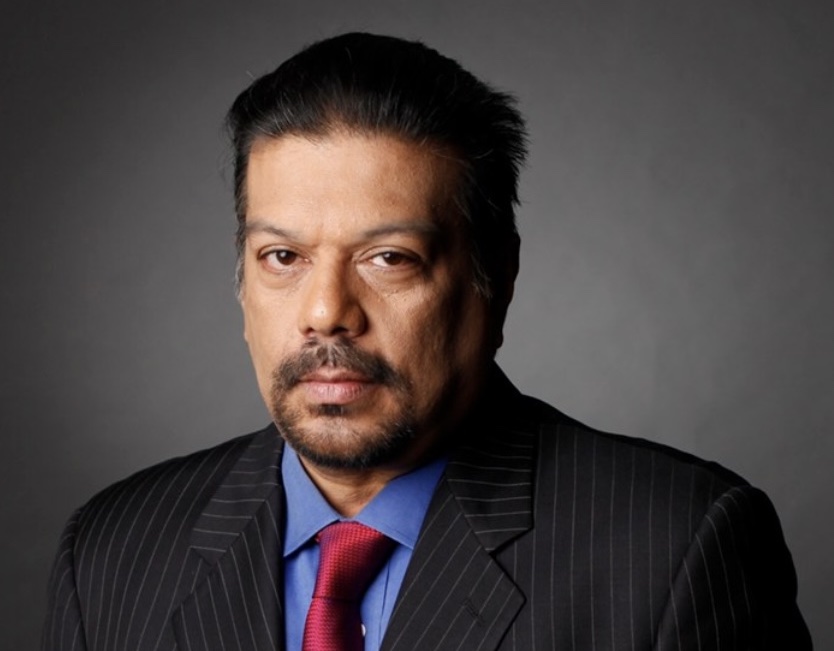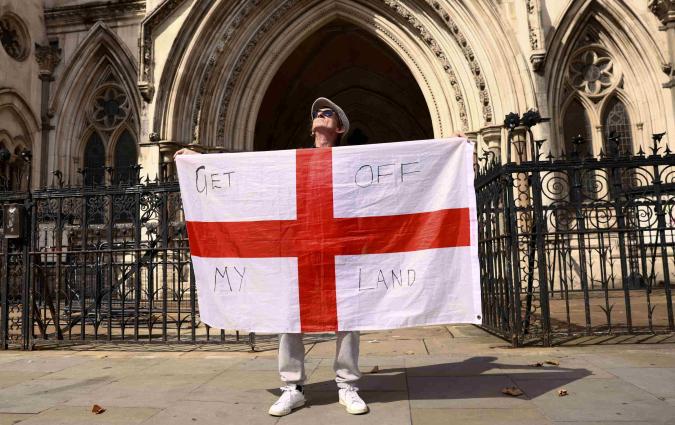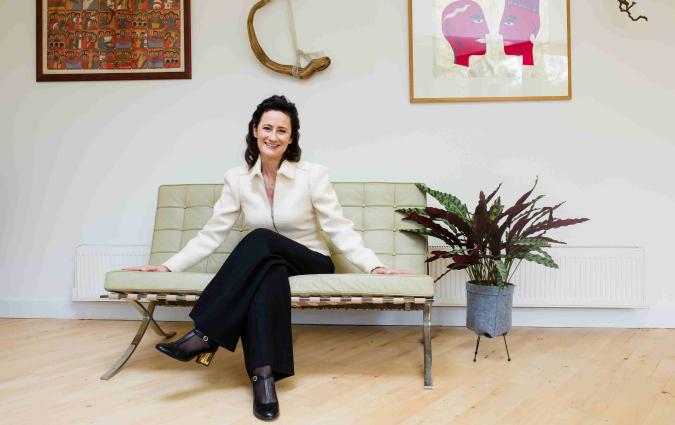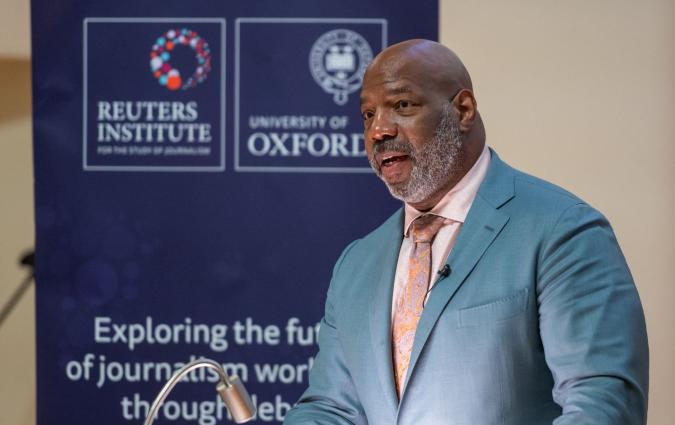“Under Narendra Modi, access has become conditional on the journalist’s ideology”

Vir Sanghvi.
Vir Sanghvi is a senior journalist and editor. He has been at the forefront of print and TV journalism in India for four decades. Sanghvi has headed editorial departments at leading English language newspapers such as Hindustan Times and at the path-breaking magazines of the Ananda Bazaar Patrika Group. He maintained a parallel career in television by hosting several high-profile interviews and shows for India’s public broadcaster Doordarshan and for private channels such as Star TV and NDTV. He is arguably India’s most famous food critic and writes a popular column titled Rude Food.
In November, Sanghvi’s memoir A Rude Life was published by Penguin Random House. The book details his access to the highest sources in successive Indian governments. “As a chronicler of history in the making, with access that is rare, his own life has been no less momentous,” senior journalist Barkha Dutt wrote about Sanghvi’s book. As a senior editor, he has come in close contact with several Prime Ministers of India and several influential politicians and businessmen.
In this interview, Sanghvi discusses the importance of having access to sources and getting responses from officials (especially in investigative journalism) and explains how tough it is for Indian journalists to access high-profile sources today.
Q. How important is it to get access to senior government officials? Many stories that make allegations against a person or an institution often fail to secure their response.
A. That is a valid question. All too often investigative journalists make allegations against individuals that are reported as fact without any attempt to get responses from them and without verifying them. This has always been true, but it has never been as bad as it is today.
Q. You express surprise in your book at the fact that senior leaders agreed to meet you when you asked for their time. Today any journalist in their 20s would have to approach their PR department first. How do you think this changes the story?
A. In that era there were hardly any PR professionals. If you wanted to interview a movie star, you called them directly or dropped in on the sets. That would never happen now. Politicians adopted an open house policy. Many would come out to meet anyone who came to their homes every morning. It was easy enough for a journalist to attend this morning meeting and get direct access. On the age issue, remember that the magazine revolution in India was started by people in their twenties. MJ Akbar was 25 when Sunday came out. When I started writing for India Today, most of the staff was under 30.
Q. You say at the beginning of your book that you came from privilege. Since you worked in publications that were only starting out, did your personal contacts matter more than the heft of the publication?
A. Not really. In my days at India Today we got access to some hard-to-get individuals like [established Bollywood stars] Raj Kapoor and Amitabh Bachchan because of the personal contacts of the editor and owner. My own family’s contacts were not much help. The people that my father had known – say, Rajni Patel [senior Indian politician and lawyer] – were out of power by then and easy to get access to. Today access to powerful people has become conditional on the journalist's personal perspective and ideology.
Q. When did you notice this change?
A. It began with Narendra Modi’s regime. During the government of [Prime Minister] Atal Bihari Vajpayee [1999-2004], it was no secret that I was opposed to the Hindutva ideology but nobody denied me access. During the Manmohan Singh government [2004-2014], they were too disorganised to even know what ideology a journalist subscribed to. For instance, Rahul Gandhi cancelled a scheduled interview with Barkha Dutt and spoke to Arnab Goswami instead though Arnab had been attacking the Congress Party night after night. [Arnab Goswami is known for his loud theatrics in the name of news discussions, over a period of time, he has come to be known as pro-Modi and pro-BJP. In 2014, when Rahul Gandhi agreed to speak to Goswami, it was his first TV interview ever. Barkha Dutt was heading NDTV, which had a better reputation as a news channel].
Q. What is it about Modi and his government, you think, that makes him inaccessible to those he considers hostile?
A. He is inaccessible even to those he does not consider hostile. Why bother talking to the media when you can get them to tailor news broadcasts to your government’s specifications anyway?
Q. How has the relationship between journalists/editors and politicians changed with Modi in power?
A. Modi has no time for the media. So you never get a piece that accurately predicts what he will do next. Nobody meets him long enough or often enough to get a sense of how he thinks.
Q. Does expressing an opinion on social media influence the kind of access a journalist has? What can one do about that?
A. Yes, it does. Everyone in India is obsessed with social media. They remember what you tweeted years ago and hold it against you. It’s not just politicians. I once tweeted about a bad experience at a restaurant and the Taj group looked for ways to punish me!
Q. Do you think, then, that news reporters shouldn't express their opinions on social media? Is it different for columnists? Any exceptions to this rule?
A. No. As long as the news coverage is not slanted, there is no point pretending that reporters don’t have opinions.
Q. Rajiv Ratna Gandhi served as the sixth prime minister of India from 1984 to 1989. In 1991, as he was campaigning to be elected to the top job again, he was assassinated by the LTTE, a militant separatist group fighting for an independent homeland for Hindu Tamils in Northeastern Sri Lanka. In your book you write that the leader of the LTTE Prabhakaran allegedly read an interview with Gandhi that you and Aveek Sarkar had published, where he said LTTE could be a threat to peace, and that this might have contributed to the assassination. Journalism used to be a high-stakes game. Every printed word carried weight. How did you ensure you maintained credibility while doing such high-stakes interviews?
A. For the record, I don’t think that our interview led Prabhakaran to order a hit on Rajiv. But yes, there was a time when the written word could influence events in India. That’s not true any longer. I can’t think of a single recent article or interview that has made a difference to government policy or to how events played out over the last seven years. There have been investigative stories with revelations that could have severely damaged a government in the old days. Now it’s just water off a duck’s back.
Q. Today there is a proliferation of "unnamed sources" even in articles which do not talk about sensitive issues like national security. Why do you think that is? What was your policy on anonymous sources when you were an editor?
A. I understand the need to talk to people for background information and I respect the off-the-record principle. But it has always worried me when journalists use unnamed sources to write damaging things about other people. When I was an editor, my principle was this. If an unnamed source from the intelligence agencies said that information about an attack had been received two weeks before the attack, then that could go in. But if they said they had proof that students at Jamia were in touch with the terrorists, then it could not go in unless they told us what the proof was. And even then we would have to first check with the students for a response before running it. The Hindustan Times had eleven editions in different cities when I was editor. So it was not always possible to ensure that this rule was strictly followed, but we did our best.
Q. Have you ever refrained from publishing something you knew in order to be able to publish a bigger story on the issue later on?
A. No.
Q. You also mention that several people you interviewed were friends. How did you manage to write about these people when you had lunches and dinners with them in a personal capacity?
A. It’s always a problem, but you had to make a distinction between people you were friendly with and those who were your friends. I was friendly with Thackeray [late Indian politician and founder of political party, Shiv Sena] but he was never my friend. It can help to have a friendly relationship with an important person because people reveal more over a relaxed lunch than they do when you meet them in their office. The difficulty is when they are friends. For instance, I knew Madhav Rao Scindia [descendant of a princely state and union minister in the early 1990s. Sanghvi wrote Scindia’s biography later] since 1977 before either of us amounted to very much. When he did become important, it was a relationship we had to carefully negotiate.
Q. Could you talk a bit about the access that regional language journalists get versus the access English-language journalists managed to secure during your time as editor and journalist in India?
A. In my experience regional language journalists always had better access than English-language journalists. They managed to get politicians from their regions to open up in a way that we never could. Rajiv Shukla and Udayan Sharma, who worked for Ravivar [the Hindi publication of the same group that Sanghvi edited the English magazine for], were better informed about the intentions of North Indian politicians. Bengali journalists got much more out of Pranab Mukherjee [A Bengali language-speaking politician and former President of India] than any of us.
Q. Why do you think regional language journalists had more access than English language journalists?
A. Because most Indian politicians are not natural English speakers and are far more comfortable talking to people in the languages of their states.
Raksha Kumar is a freelance journalist, with a specific focus on human rights. Since 2011, she has reported from 12 countries across the world for outlets such as 'The New York Times', BBC, the 'Guardian', 'TIME', 'South China Morning Post' and 'The Hindu'. Samples of her work can be found here.







